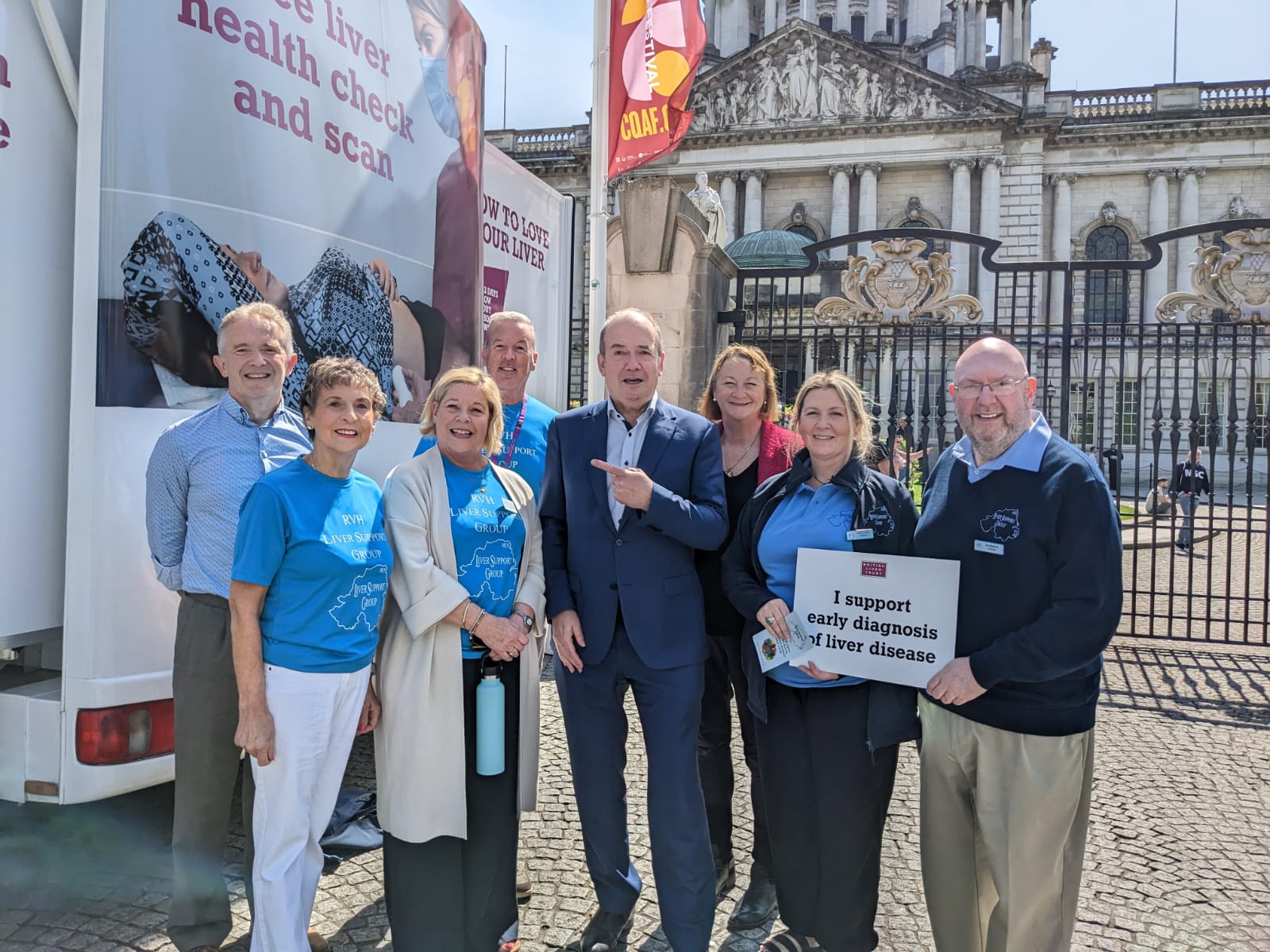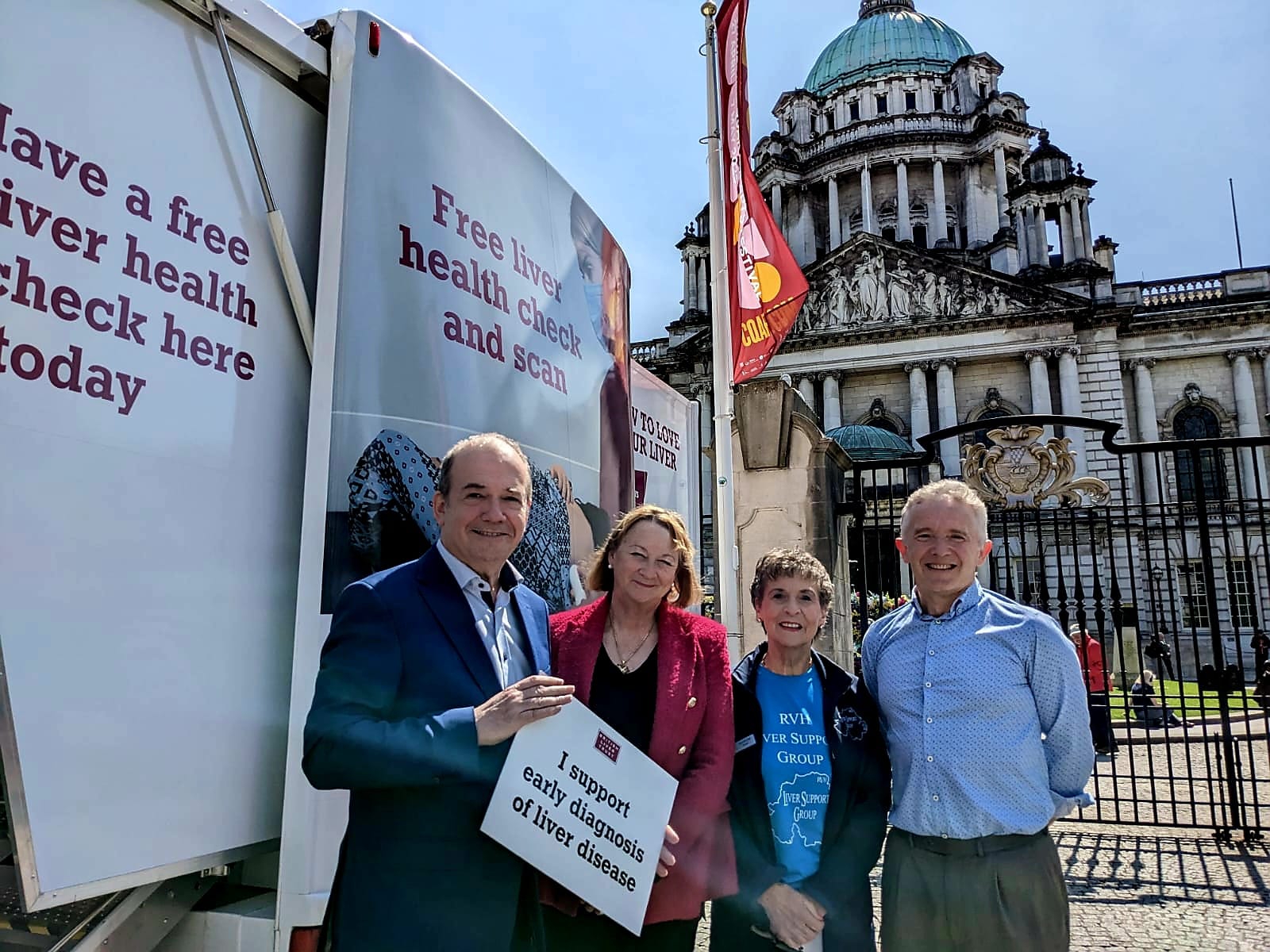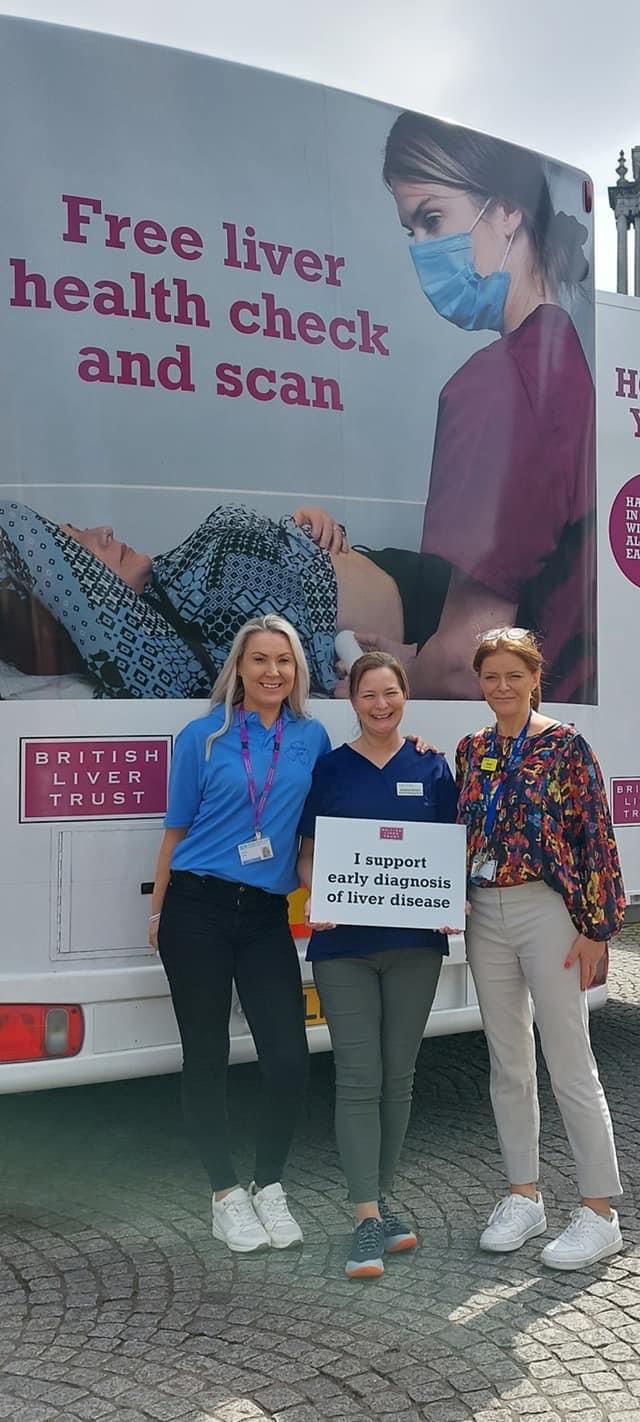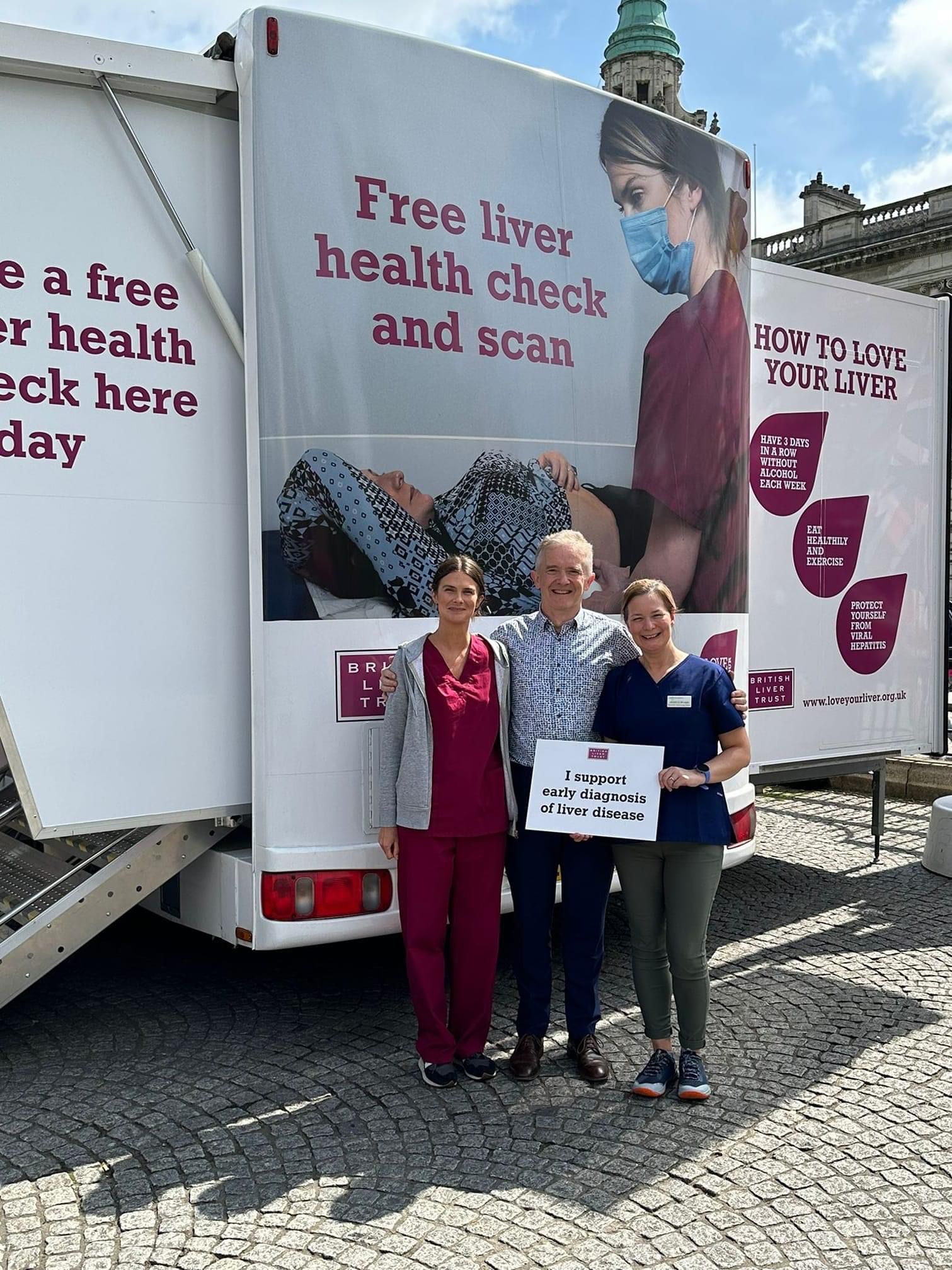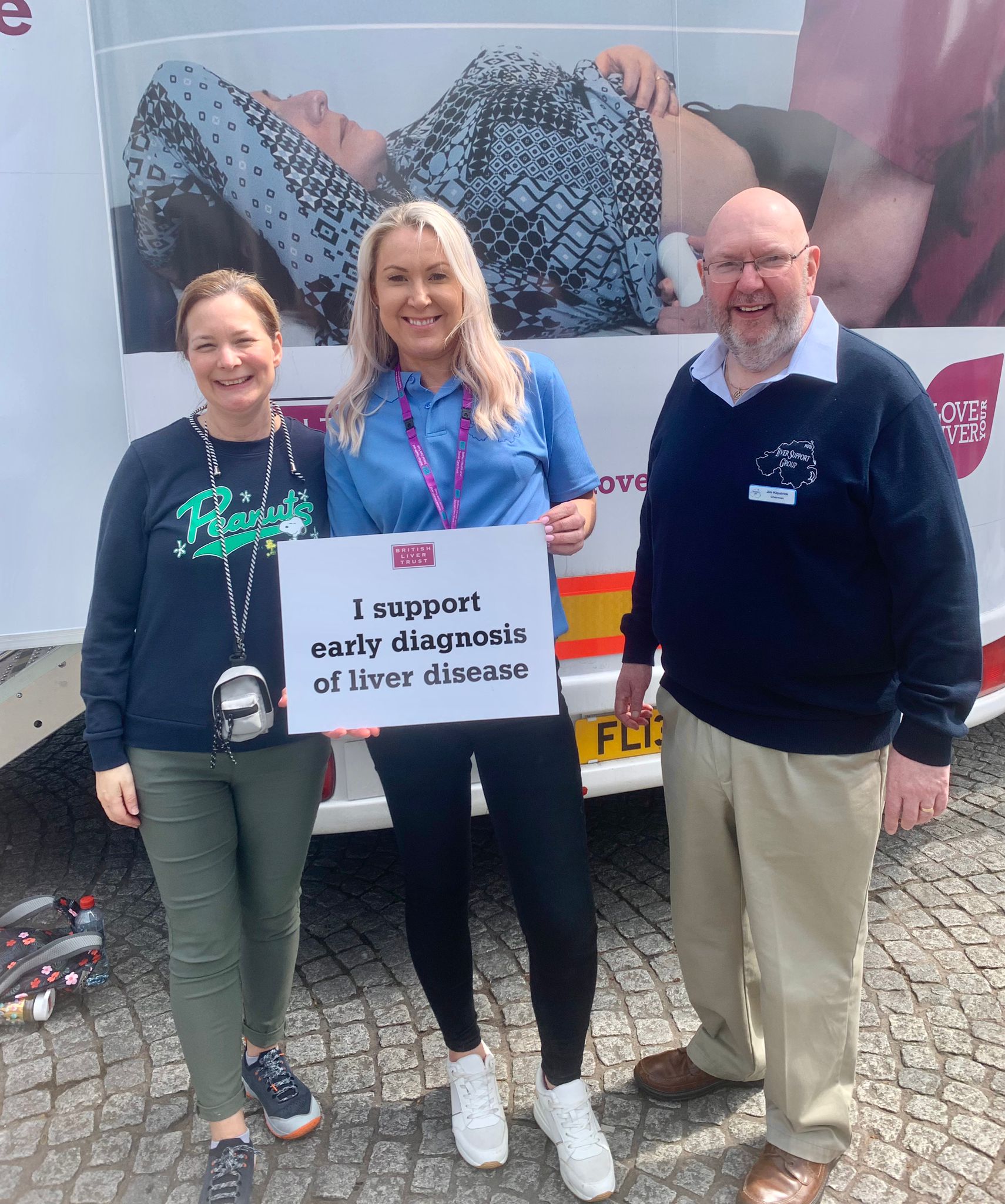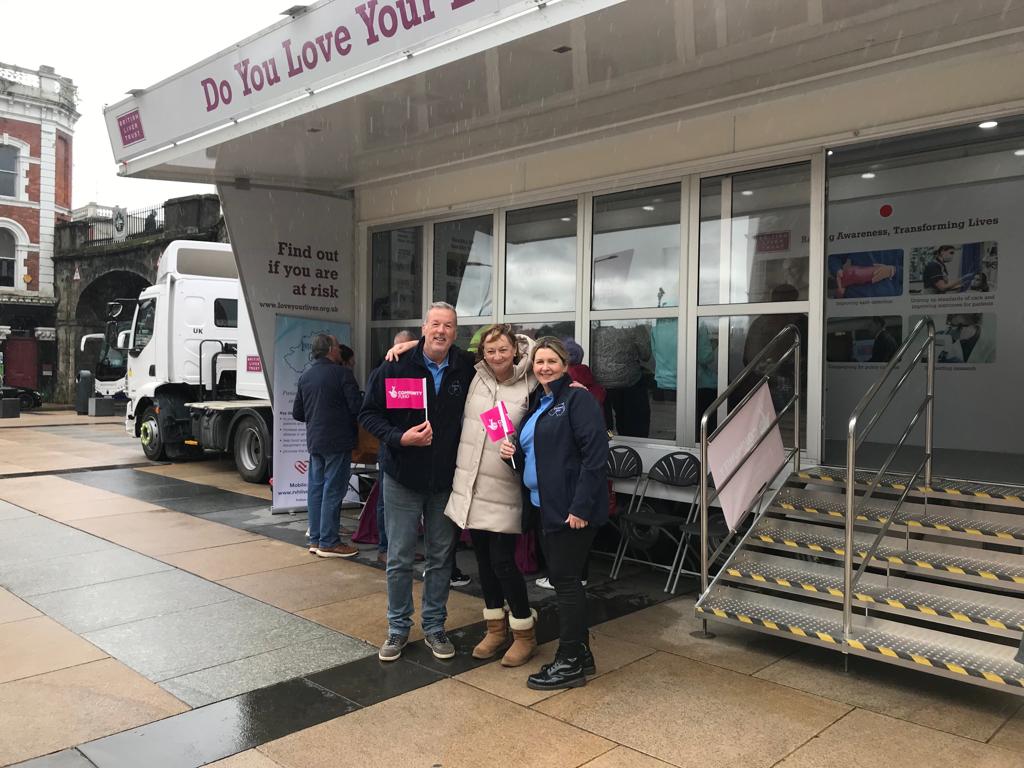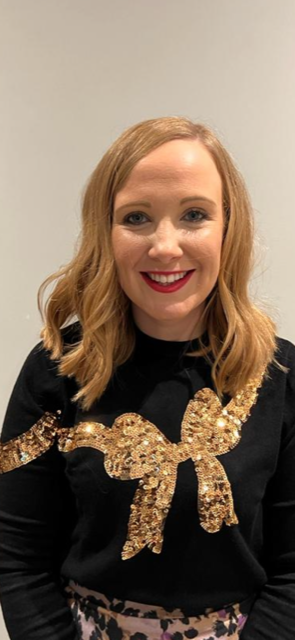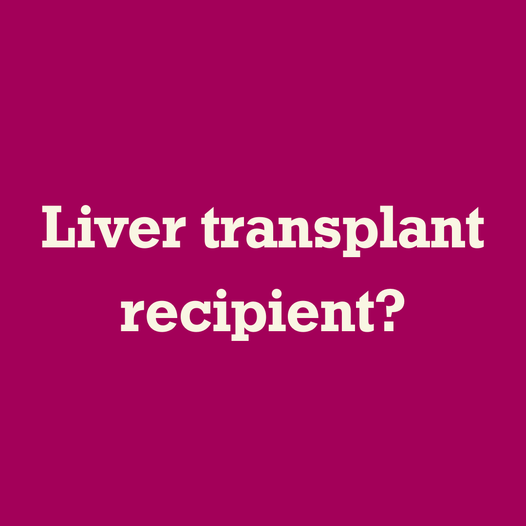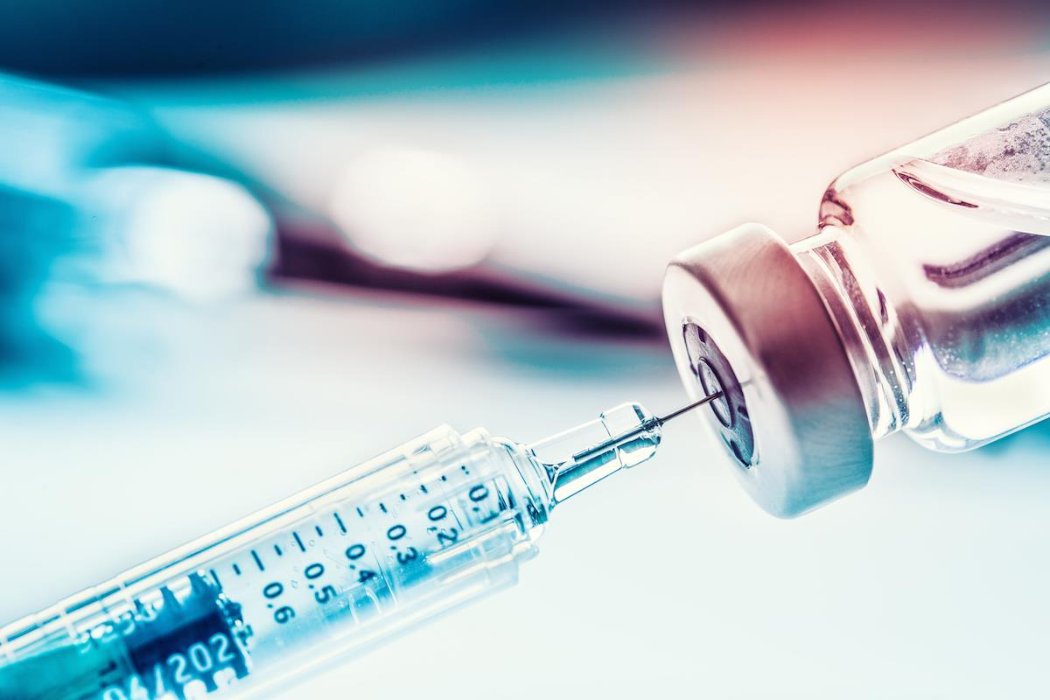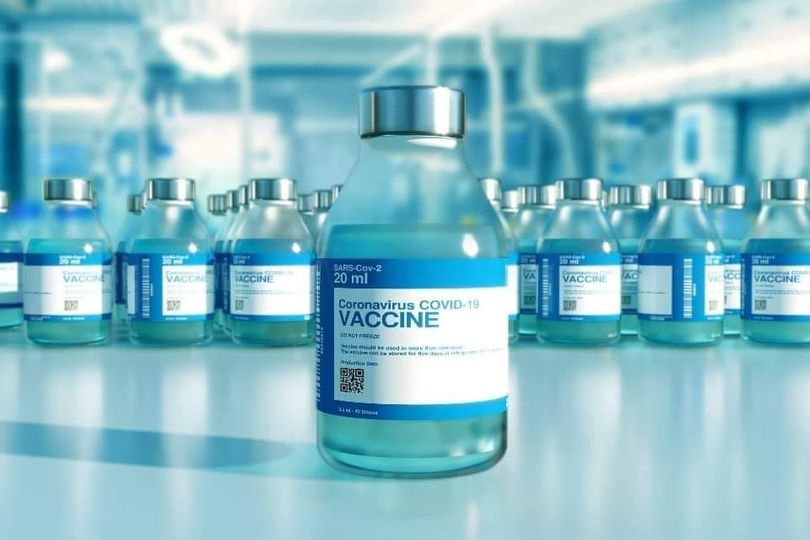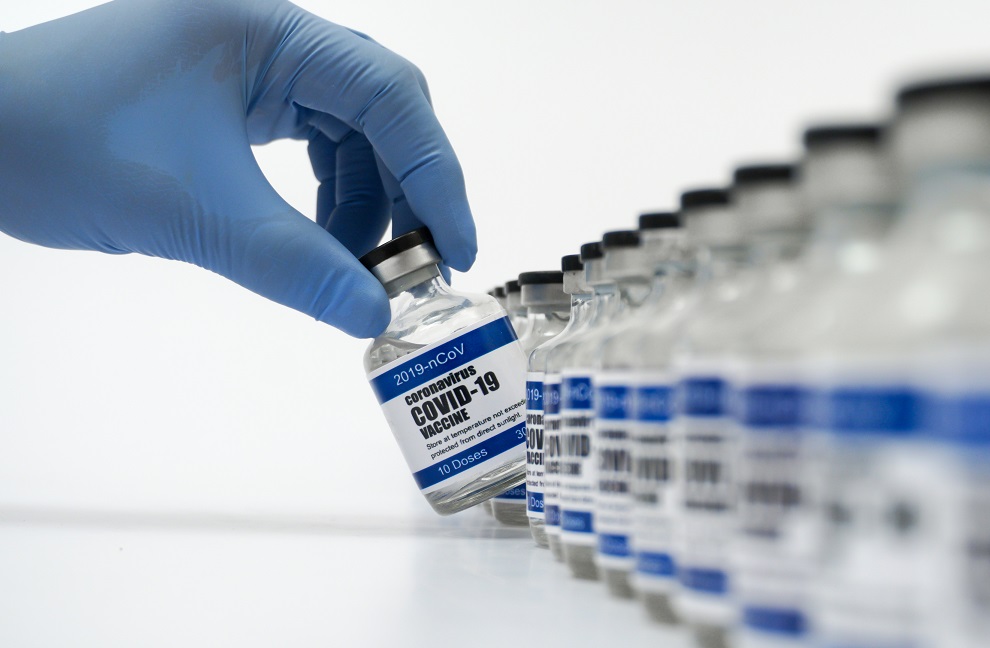The British Liver Trust joins forces with the RVH Liver Support Group
The British Liver Trust recently visited Derry/Londonderry as well as Belfast and provided a “drop in” centre where members of the public could quickly find out about their liver health via a questionnaire and free liver fibroscan. More then 350 people attended the event and were given advice and information on the health of their liver. This is the first really proactive method of helping the public not only become more aware of what their liver does but also to help them to understand the need to take good care of it.
The RVH Liver Support Group welcome this approach and hope to be able to do more in the future to enable the general public to learn more about liver health and change their lifestyles where needed.

